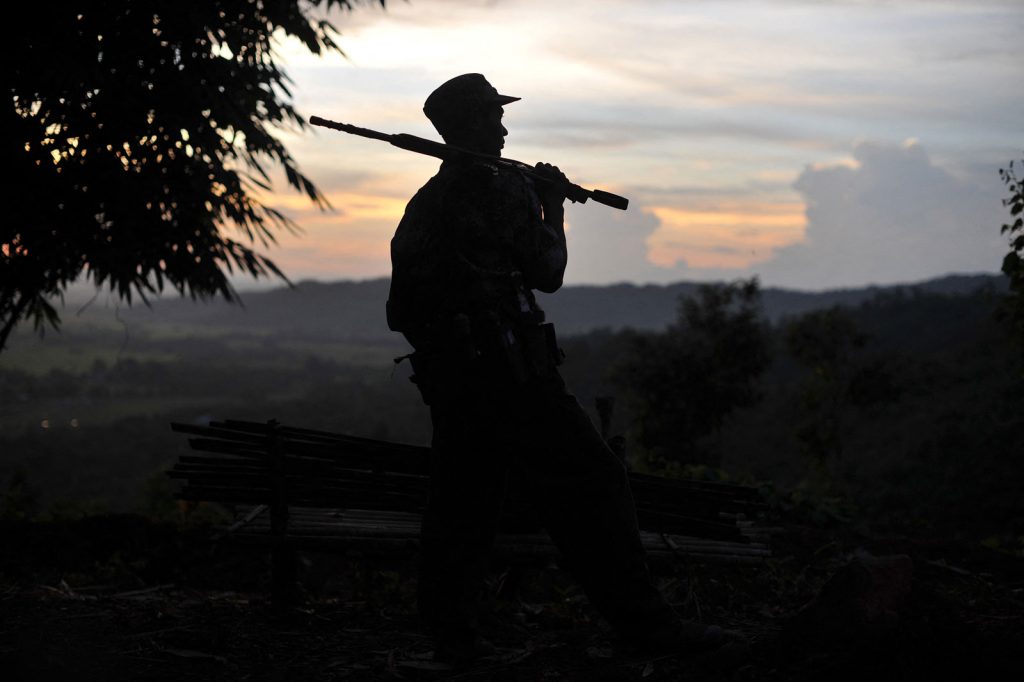
What Matters No. 51
(This article is a translation of the Burmese language version that ISP-Myanmar posted on its Facebook page on September 28, 2021.)
Seven months after the February 1 military coup, armed clashes have erupted in Myanmar. These clashes come amidst concern as to whether Myanmar is, or will come to be, regarded as a failed state by the international community. As the country’s various tensions and conflicts continue unabated, the people of Myanmar continue to suffer the effects of living in a state beset by politically motivated violence and revolution. This state of affairs has led many to conclude that rebelling against the military junta, and uprooting the entire political system in the process, is the only way to bring about lasting, meaningful change for the citizens of Myanmar. It is difficult to predict when this vicious cycle of civil wars will end; as such, there are discussions taking place internationally as to why they have been so persistent and protracted.
∎ Key findings in brief
International researchers generally agree that civil wars and, sectarian conflicts within a country, are less likely to be resolved when compared to wars and conflicts between separate nation states (Mason & Fett, 1996). The root causes of civil wars are also generally different from the reasons two nations might go to war with each other.. Researcher Elshelmani (2015) has identified three key factors that can prolong a civil war—1) limited capacity for compromise between different sides/factions, 2) fragmentation and internal rivalry within one side/faction (e.g. rivalry between hardliners and moderates within each party involved in the conflict), and 3) the presence of interests dependent on the continuation of violence.
Wars end in many ways. Regardless of how a conflict concludes, political and military dialogue between the parties is always a step that needs to be taken to secure peace. Compromise between all parties is required in such cases, but, in a civil war, there is limited space for negotiation. With this limited capacity for compromise, it is particularly difficult to reach a resolution, especially if the goals and objectives of the resistance are revolutionary and they want to change the whole fabric of society. Ruling authorities tend to respond to these ambitious resistance demands with a variety of suppressive means, which often result in military action, rather than remaining within the bounds of nonviolent political dialogue. As a result, both sides take up extreme positions, and this protracts the civil war.
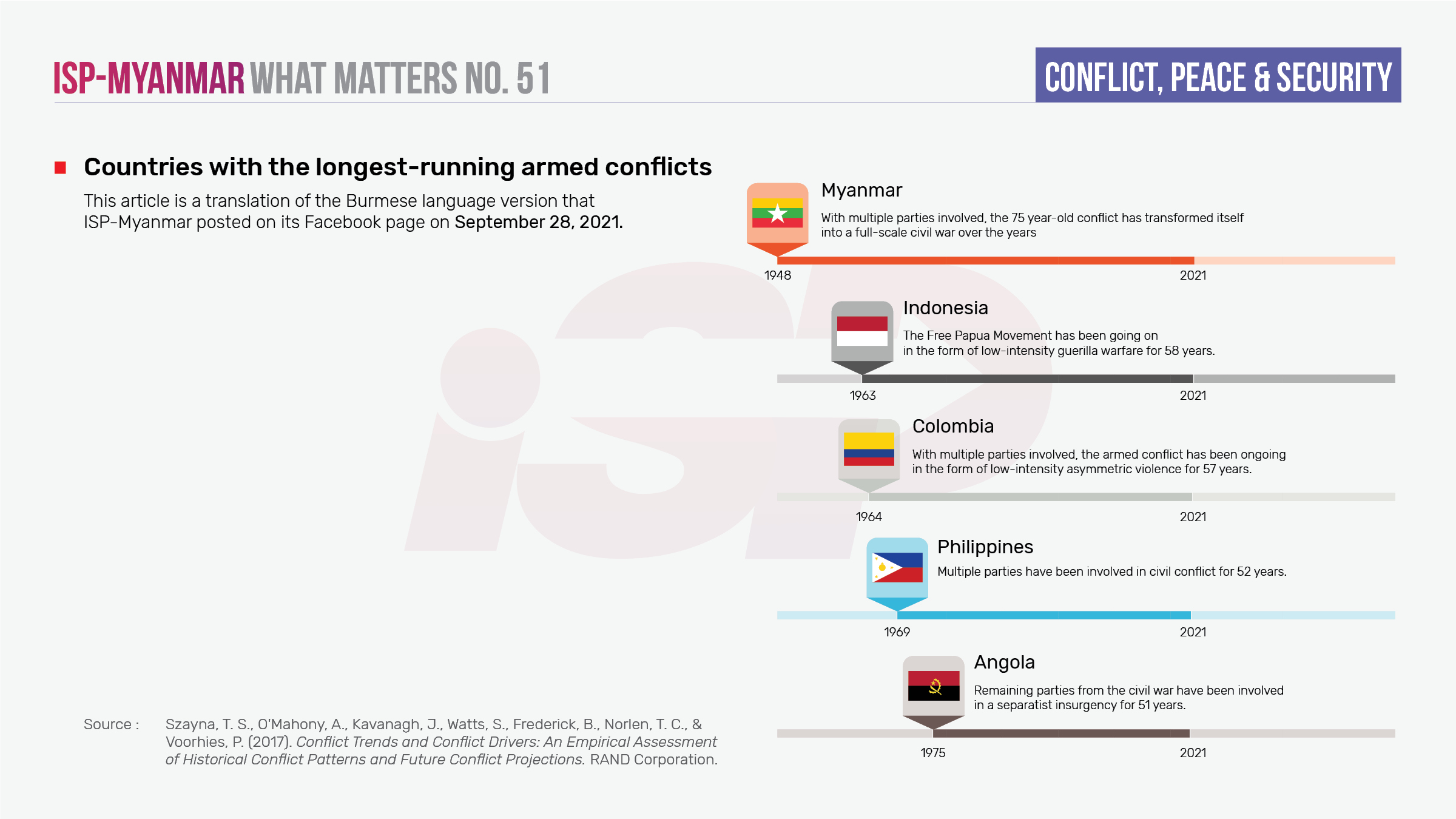
In order to secure peace talks and productive political dialogue, each faction needs strong and representative leadership. This poses many challenges in a civil war: in this context, power-plays and mistrust between the hardliners and moderates of various movements can often derail meaningful discussion. At times, the leaders at the discussion table may not even be able to control the military tensions occurring on the ground. As a result of these, civil wars often take longer to resolve.
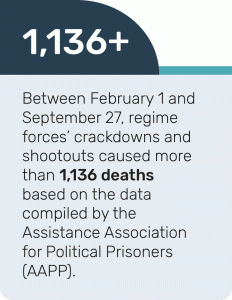
Finally, the economic interests of all parties involved must be factored in to the political context. In civil wars, one side may control areas of territory with abundant natural resources and thereby benefit economically . In such cases, these regions are often stuck in a loop of conflicts. Issues such as illicit trade, drug production and trafficking, and human trafficking can also be of concern along with the ongoing conflict. These conditions can in turn create new players in the conflict, which serves to extend the civil war, leaving society in a vicious circle of conflict and violence.
∎ Why does it matter?
As a civil war drags on, the number of casualties, civilian and military, will increase dramatically. A society afflicted by sustained conflict and violence will struggle to create the conditions for peace. The cycle of violence and armed conflict is not only a problem for that country, but also for other countries in the region. Therefore, it is in everyone’s interest to study the key factors that can prolong the civil war.
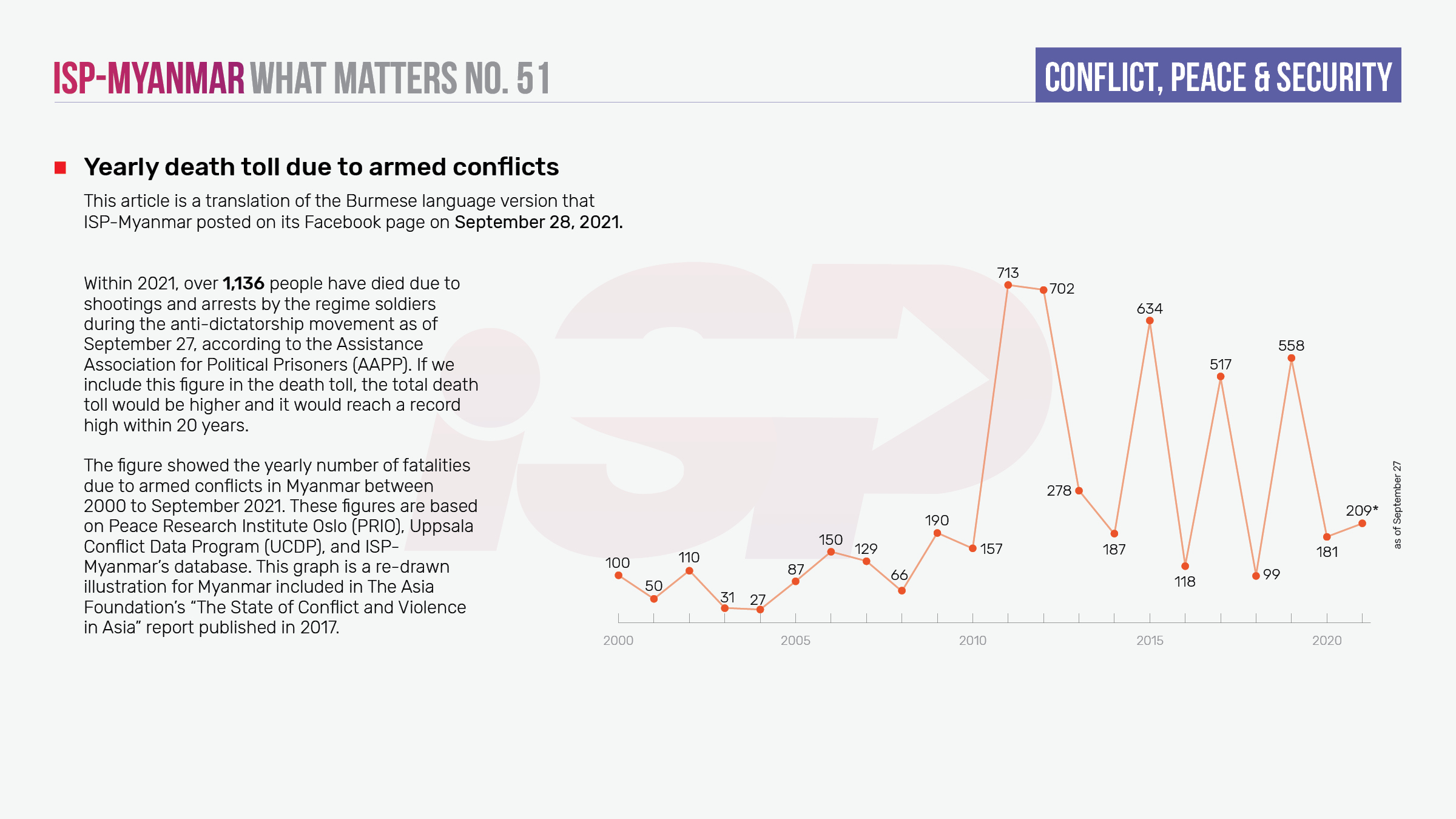
∎ Is it relevant to Myanmar?
Myanmar has experienced one of the world’s longest-running civil wars. Even now, it is facing a crucial turning point that could cause the situation to deteriorate even further if it is not handled carefully. Therefore, study of the factors prolonging civil war is acutely relevant to Myanmar, and, in particular, the three key factors identified by researcher Elshelmani (2015), which can be clearly identified in Myanmar’s civil war.
The first factor—the limited capacity for compromise is reflected in Myanmar’s predicament, which involves many armed groups with different military and political backgrounds. These groups have different federal goals, accumulated resentments and high levels of distrust. Given this context, views on security integration differ from one group to another. Moreover, the highly ambitious revolutionary goals of the resistance forces and political organizations born out of the current Spring Revolution against the military dictatorship are not yet in a position to broker a compromise with the military junta, which has used various means to manipulate and strengthen their power.
The second factor – fragmentation and internal rivalry within groups – has been a recurring theme in Myanmar throughout history. The nature and style of leadership differs between each ethnic armed group, along with various internal conflicts. Additionally, there are often fundamental and strategic differences between the political leaders and the military leaders, who command the brigades and battalions on the ground. These are normally insignificant, but often emerge during momentous political upheavals, leading to the formation of internal rivalries and fragmentation.
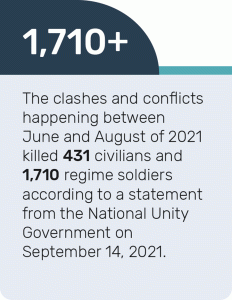
The last factor—the link between civil war and economic interests- can be seen playing out in Myanmar in many different ways, especially when it comes to the military’s economic interests. Billions of dollars are flowing into the country’s economy through multiple channels, ranging from illicit trades to the production and trafficking of drugs, and this money is used to support the armed conflict. Much of Myanmar’s resources are controlled by the military, whereas the resistance forces need to find other ways to raise funds to support their war effort. This creates a cycle of ongoing conflict, which requires a source of income, the obtaining of which in turn prolongs the civil war.
There may be many other underlying issues that are also prolonging the civil war. However, considering these factors can be helpful in finding a solution to the situation.
∎ Further Readings
Elshelmani, A. (November 23, 2015). Why Are Civil Wars So Protracted and Difficult to End? E-International Relations. https://www.e-ir.info/2015/11/20/ why-are-civil-wars-so-protracted- and-difficult-to-end/
Mason, T. D., & Fett, P. J. (1996). How civil wars end: A rational choice approach. Journal of Conflict Resolution, 40(4), 546-568.

